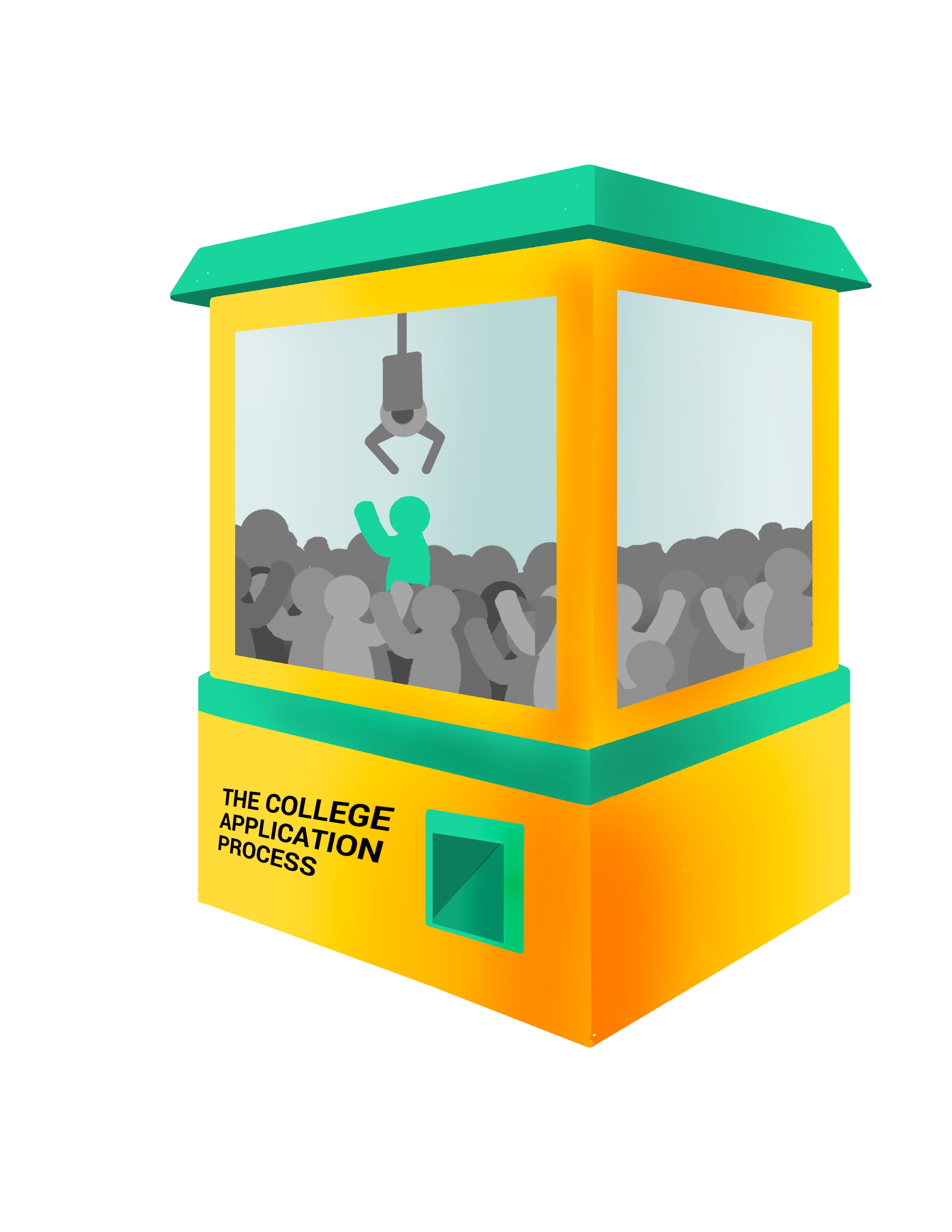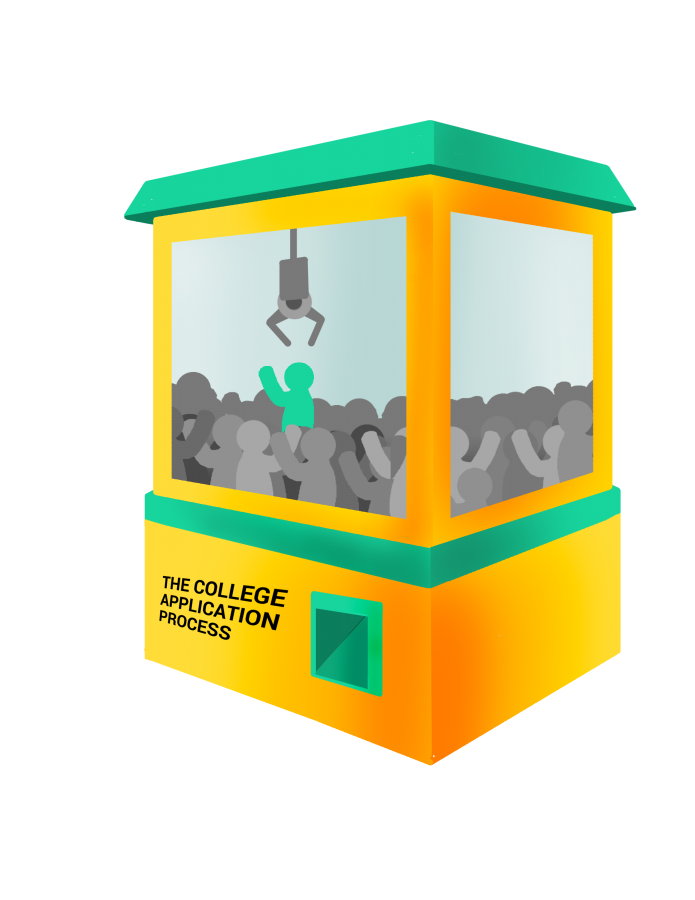he end of the school year is approaching, and with it comes a big decision for seniors — choosing where to go to college. For some, that is easy. They got into their first choice. But for others who didn’t get into their first choice, they are left with an often difficult choice.
The college application process can be very competitive, with highly prestigious or popular schools being more difficult to get into. Because of this, many counselors and students who have gone through the application process recommend dividing up the schools into “reaches,” “target” and “safety.” However, as applicants at schools like the University of California San Diego reach record levels for the tenth year in a row, according to the UCSD News Center, the line between “reach” schools and “safeties” is being blurred.

Senior Joseph Wong was shocked to get his decisions back. Wong applied to many targets and reaches, while also applying to a few safeties. But when he received rejection after rejection from schools that, looking only at statistics, he considered to be safeties as well as targets, Wong was very confused.
“It seems like this year has been the most competitive with the most applicants as well,” Wong said. “The problem is that people are getting more and more competitive and more highly qualified now, so it’s just going to keep getting harder.”
Wong’s experience was not an isolated one. According to Samantha Timmerman, a college coordinator at College Possible, which helps low-income students apply to college, schools are becoming more selective with who they accept. Timmerman, who advises several college counselors, has noticed this trend, especially this year.
“I don’t necessarily think it’s getting harder; I think that schools are trying to be more selective than they have in the past,” Timmerman said. “You can look at pretty much any selective college […] you’re most likely going to see a trend of [their acceptance rate] decreasing, because the more selective the college is, the higher they rank on things like the ‘U.S. News Report.’”
This increased selectivity could be for a number of reasons — a growing number of applicants, higher standards or even a change in the way schools are evaluating applications. Timmerman believes schools are becoming more likely to select students who show an interest in their specific university and would be a good fit there, on top of the rest of their application.
“Any school that you’re applying to, you should be able to actually see yourself going there,” Timmerman said. “And I think as [schools] are starting to be more selective, they want to see students that really actually want to be at this school.”
Junior Lauren Ling, who has talked to many seniors about decisions, feels that it can be worrying to obsess over rejections, especially while still focusing on her current work. But she does understand how anxious it can be to get decisions back.
“It seems like a lot of people who are academically qualified and should have gotten in didn’t get into the schools they expected to get into,” Ling said. “Especially when I hear people with [good grades] getting rejected from [good] schools […] that’s concerning for me.”
However, Timmerman says that schools are no longer basing their decisions on grades alone, and in fact, are transitioning to a more holistic way of assessing applicants. She thinks this change might be difficult for students to adjust to, as it is much easier to compare stats, but once students look at their applications as a whole they should feel differently about their chances of getting in.
“One thing that we’ve noticed from colleges over the years is that more are becoming test optional, and so they’re not looking at those test scores,” Timmerman said. “I think that’s a huge indicator of how important other aspects of a college application are [becoming], outside of the test scores.”
Whether that means prioritizing other aspects of an application or re-examining why you’re applying to a school in the first place, there are options for the class of 2019 and beyond. And that’s what Ling is focusing on. Her plans for next year, while taking in consideration the competition, have not been completely changed by the unexpected results.
“There’s no point in me worrying about it … I can’t really control what the colleges decide,” Ling said. “I’m just going to continue doing what I’m doing and enjoy my time before college apps.”







